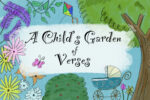Keilah Granados, a second-year student at the University of Texas at Austin, recently self-published her first book of poetry, “Wanders the Night,” through Amazon CreateSpace, following in the footsteps of her muse, Rupi Kaur. The 136-page collection centers around loss, heartache and the inner monologues of a forlorn lover, much of which stems from Granados’s personal relationships.
The sociology major, who publishes under the pseudonym Keilah Belen, draws much of her inspiration from her uncle, who works in Child Protective Services, as well as from the memories of her father and the abuse he inflicted on her family.
Her style, which offers an accessibility that is rare in such emotionally laden text, makes effective use of familiar, idiomatic language, which serves to pull the reader, unwittingly, into its fold. The conflict she presents feels present and fresh, as if the events that triggered Granados’s trauma occurred just moments before she put pen to paper.
The result is a jarring, daring, vulnerable collection of poems, each one more tremulous than the last.
Ellyot Chen: When you’re writing poetry, what literary devices do you find the most fruitful?
Keilah Granados: I focus mainly on repetition, though sometimes I do enjoy a bit of rhyme here and there. I don’t focus too much on structure really, since I’m more focused on adding depth, generally through metaphor and simile, to connect to whatever topic is at hand.
EC: Your poem, “The Giving Tree,” feels intensely personal. What led you to write it?
KG: I’ve had a lot of friendships in the past, most of which went downhill. Most of the time, I was the one who put the majority of the effort into the relationship, so the main thing the poem tries to accomplish is conveying that a lot of people have failed to reciprocate my efforts.

The issues are less about consistency than they are about being considerate and knowing what to say and not to say. I know what my friends are insecure about, so I would avoid those topics; when it came to me though, they would insult me and target my insecurities.
EC: So while you’re motivated by a desire to be thoughtful and avoid hurting them, they paid little attention to treating you with the same sensitivity.
KG: Yeah, exactly. At the same time, I was severely bullied in middle school, so I know how much words can hurt and how much they can mean. As a result, I put a lot of emphasis on trying not to bring others down. Even when I’m feeling insecure about something, I would never push that onto someone else.
EC: And these relationship dynamics, do they color your poetry? Which of your pieces has been most affected by these emotional traumas?
KG: The first one, “An Angel,” is one of my favorites, because it was the first poem I wrote after my break. It was the first poem I kept, since before then I used to throw away my writing, so the piece has a special place in my heart; it was the one that really started my passion.
Another powerful piece, ” A Hidden Treasure,” is a reminder about self-worth. It implores the reader to cherish themselves in the same way their loved ones would cherish them.
I really like “The Giving Tree” and the collection’s last poem, “The Battle Inside vs. Out, Part V.” I added the “Part V” since each piece displays a different perspective of the situation. The entire piece is rooted in a conversation between the soul and the body.
I’ve actually had several people tell me that “Part V” helped them realize who they are and helped them move on from a break-up.
EC: Near the end of the last poem you really emphasize the power of self-love. Do you like to think your poetry provides catharsis, or are you more concerned with offering a pathway to healing, rather than the healing itself?
KG: When you’re in a relationship or when you love someone, it’s really easy to forget about yourself and just give give give. I think the poem, then, is less concerned with catharsis and more concerned with providing a reminder to take care of yourself first. Everything else flows from there.

















